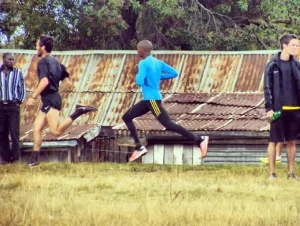100%, without a doubt, you should use minutes.
When we are training, most days are going to have a purpose and a reason. The focus we put on each day is going to line up with a physiological principle, most likely. Some days are meant to be recovery days. Some days are for endurance. Some days are for speed, and so on.
On easy days, I’ve run 10 miles in close to 60 minutes, or 1 hour. I’ve also had days where that 10 miles took me over 100 minutes, almost double. That’s a huge discrepancy in training stimulus. If I had a key workout the next day, I would not have wanted to run for almost 2 hours the day before. Where a 60 minute run would be normal and fine.

Another reason we should all track our training in time over mileage, is that it extends the good days and shortens the bad ones. Say I’m assigned a 70 minute run. On the days I’m feeling FANTASTIC, that run could be 11 miles. If I’m feeling rough, not fully recovered, tired, and rundown, I might jog this run very easily. I might go at a 9 minute per mile pace and only cover 7-8 miles. An almost 4 mile gap from the day I’m feeling great. Which is EXACTLY what we want out of our easy recovery days. More distance on the days we feel great, and much less on the days we do not. If we use distance over time, we might be spending twice as much time on our feet on our worst, least recovered days. The days we are most likely to get injured. Hard pass.
It’s very hard for some people to get out of the mindset of chasing mileage numbers. It’s much easier and more fun to tell people you ran 5 miles, not 40 minutes. We want to tell people we run 50 miles per week. I’ve seen many people get hurt because they needed to run 5 more miles to hit a weekly number. Even though it didn’t make sense, they sacrificed their upcoming training and risked injury to meet the number. I’ve seen so many runners at the end of a long session, when they’re fatigued and their form is completely broken down, run for 10 more minutes to hit a higher daily number.
The biggest thing we’re giving up when we focus on mileage is the intuition we can have from listening to our bodies. Our bodies are constantly trying to send us signals to protect us. If we aren’t just charging ahead so we can hit a big round number, we can open up our ears and hear what it’s telling us.



